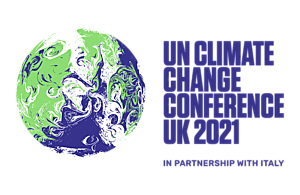Adaptation to climate change is one of the four key themes to be explored in numerous events and international negotiations at the 26th United Nations Conference on Climate Change (COP 26) in Glasgow, United Kingdom, from October 31 to November 12, 2021. Our National Adaptation Plan (NAP) Global Network experts will engage with governments, international institutions, non-profit and civil society organizations, and researchers in discussions on national adaptation planning and action.
With the COP 26 agenda looking to elevate adaptation and resilience, we will be focusing on the following elements of NAP processes:
- Ecosystem-based adaptation to protect and restore habitats, building natural defences to the impacts of climate change.
- Adaptation communications to raise the profile of countries’ efforts to adapt to the impacts of climate change, highlighting challenges faced, lessons learned, and future needs.
- Inclusivity to ensure a gender-responsive and participatory decision-making process that considers the vulnerabilities and needs of everyone.
This hub will be continuously updated during COP 26. Come here for information on our events and relevant resources on the pressing themes of adaptation.
The NAP Global Network Secretariat will be taking part in the following events:
